Freeze-thaw cycle helps clear potatoes left in P.E.I. fields after fall harvest
'The best case scenario was that Mother Nature would look after the potatoes that were left behind'
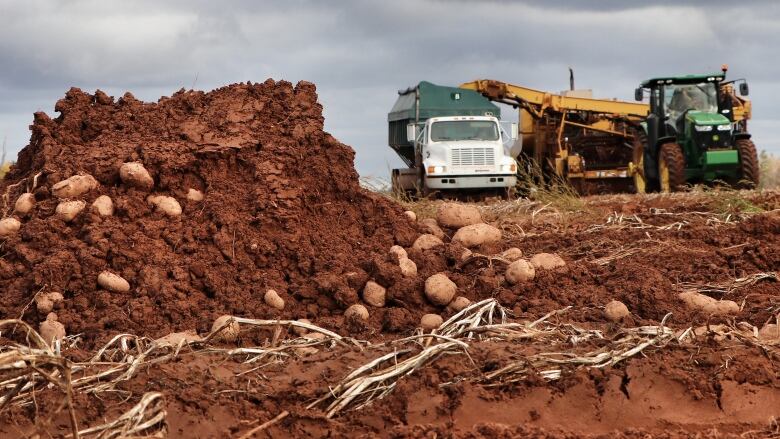
The cold, wet spring weather may feel like the enemy to many P.E.I. farmers, but this winter's freeze-thaw cycle has actually helped to eliminate what could have been a significant problem for the spring planting.
Island farmers left almost 7,000 acres of potatoes in the ground last fall after heavy rain and cold temperatures put a damper on the 2018 harvest, and the remains of all those potatoes are still in the fields or, they were.
- P.E.I. farmers come together amid tough potato harvest
- Cold, wet weather a challenge for P.E.I. potato farmers
"Over at least three-quarters of the Island, there wasn't good snow cover and that freezing, thawing and rain and the really cold weather that we had, we ended up with a really deep frost," said Greg Donald, general manager of the P.E.I. Potato Board.
"That took care of most of the [potatoes] that were left and basically caused them to go to mush so they're not viable."
Donald said that in his time in the business, he's never heard of so many acres left unharvested. He said many farmers were concerned about the potatoes remaining viable and germinating in the spring.
'Volunteers' are a concern
Donald said the potatoesleft behind in the field are called volunteersand can bea risk to newcrops.
"That would pose a concern in terms of insect pests and also disease, especially if they grow in another crop," Donald said.
Donald said farmers talked about different scenarios to best manage the fields where potatoes were still in the ground.
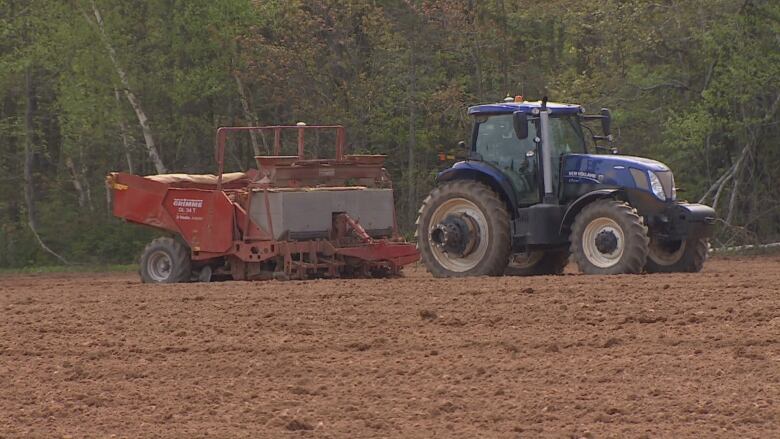
"The best case scenario was that Mother Nature would look after those potatoes that were left behind and, through freezing and thawing, break down those tubers," Donald said.
He said the end result is a good one for farmers.
- Blowing soil concerning, 'disappointing' for P.E.I. farmers
- After hard fall, farmer counselling service has busy winter
Fields will be monitored
Donald said there may still be some concern around tree lines or sheltered areas where the snow remained and insulated the volunteers from frostthrough the winter.
"But for the most part it's believed that the frost took care most of them and it shouldn't be any more of a concern than a normal year," Donald said.
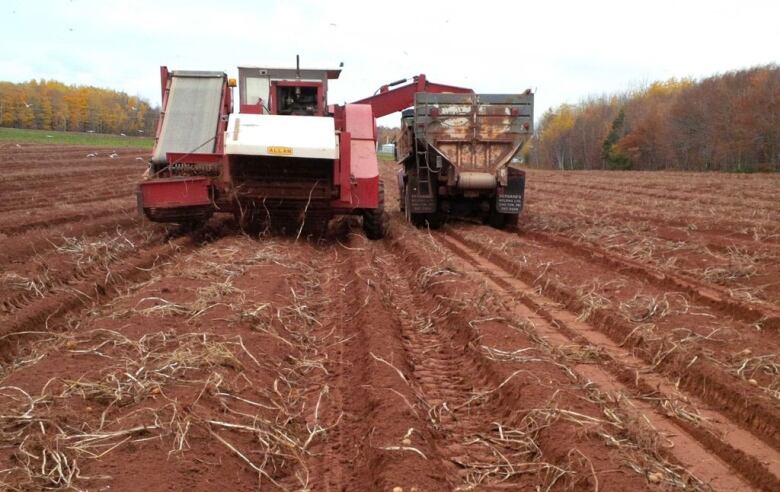
He said many farms employ crop scouts to monitor the fields and they'll watch the fields closely to see if there is a concern with tubers left behind.
Wet start
Donald said potato farmers are focused now on getting the 2019 crop in the field and that has also had its challenges.
"I would say they're very concerned right now that there have been delays," Donald said.
"We might have five per cent of the potatoes planted to this point and we're probably a week behind where we'd like to be."
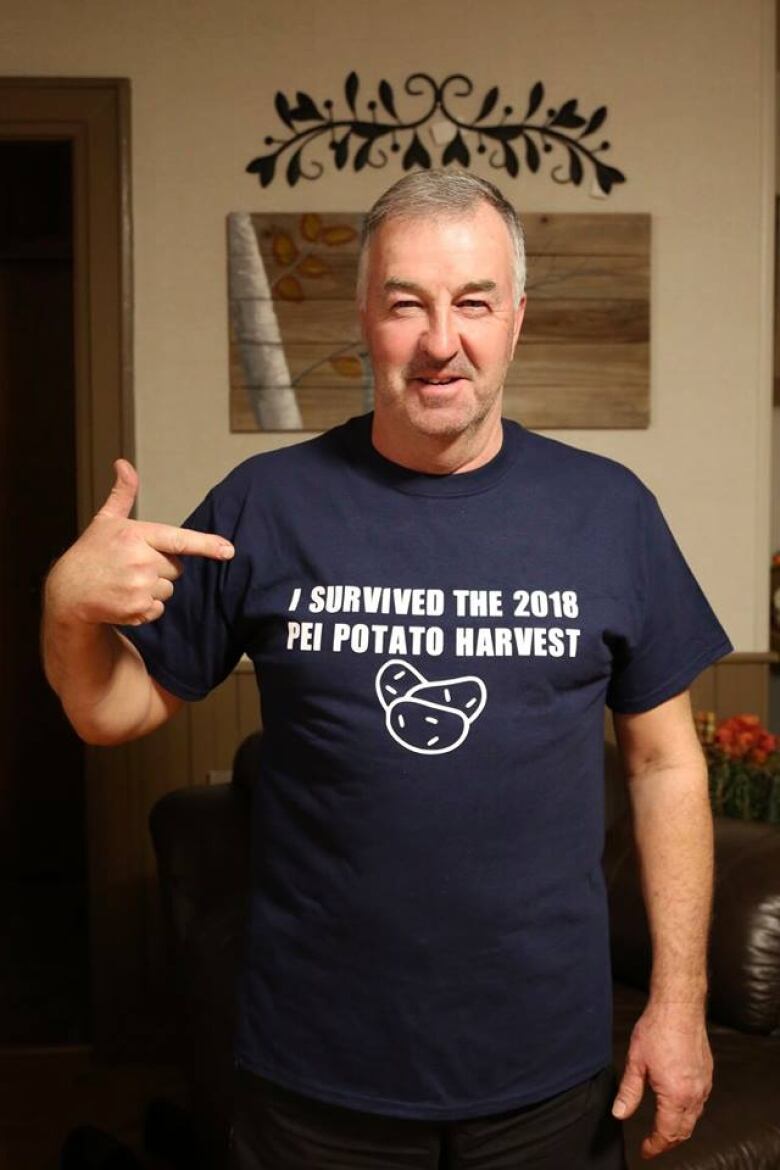
The spring planting season has come to a halt for Jason Hayden, chairman of the P.E.I. Potato Board, who with his family operates a potato operation in Pownal called Eastern Farms Limited.
"We did have a pretty good start in early May, although it was cold, the ground was in good shape," Hayden said.
"But now the ground is pretty well saturated with water."
Eager to get started
Hayden said he is farther along than some other potato farmers across the Island.
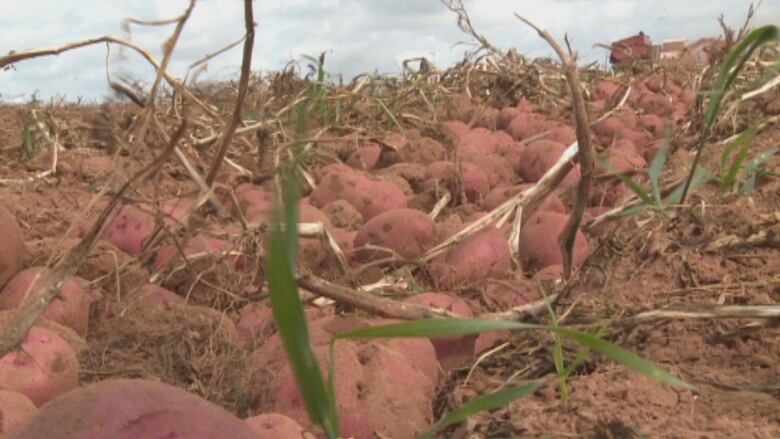
"For ourselves, it's not so bad, we're about 70 percent completed," Hayden said.
"There's a lot of growers that haven't planted any potatoes yet and they're eager to get started because they are trying to get back on track from the kind of the mess they had from the harvest last year."

Hayden said the weather is a constant challenge in the farming business on P.E.I.
"We'd like to turn the page and forget about last fall if we could but it does sort of remind us of last fall," Hayden said.
"Generally Prince Edward Island can be a difficult place to farm and that's kind of showing again this spring."












_(720p).jpg)


 OFFICIAL HD MUSIC VIDEO.jpg)
.jpg)



























































































